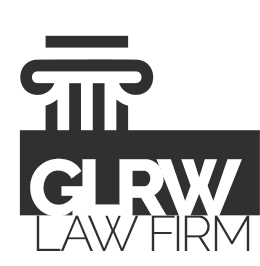Every New Jersey eviction will involve some level of litigation and a courtroom appearance. Landlords who attempt to evict tenants without following proper eviction litigation processes will find that their efforts are ineffective, and tenants who respond to eviction litigation claims without legal representation risk financial consequences in addition to losing their right to remain on the premises.
Because New Jersey is a judicial eviction state, landlords and tenants should retain an attorney who has a thorough understanding of state and local eviction rules and processes to have a better chance at receiving a successful outcome. For more than 50 years, the New Jersey eviction lawyers at GLR&W Law Firm in New Jersey have represented parties on both sides of eviction litigation. We know how to protect property owner investments as well as tenant rights.
Landlord Grounds for Filing an Eviction Litigation Lawsuit in New Jersey
A New Jersey landlord can only evict a tenant for specific and verifiable reasons, including, for example, that the tenant:
- Failed to pay rent or consistently paid it late
- Destroyed or damaged the leased premises
- Used the premises for unsafe or criminal activity
- Regularly violated rules or restrictions defined in the lease document
- Acted in a disorderly manner or disturbed other tenants
- Stored dangerous products or engaged in other conduct that threatens health or safety
- Has been convicted of theft or other property crimes
- Threatened the landlord or his or her employees or family members
With properly given requisite notice, a landlord may also cancel a tenancy and seek eviction:
- When a property has been converted to a coop or condominium.
- After an original lease term has expired without renewal.
- If a tenant does not agree to revised renewal lease terms.
New Jersey landlords may not evict tenants for nonpayment of the portion of their rent that is used for utilities, such as heat and electricity, or for failure to pay rent increases that are barred by state or local laws. Landlords should consult an experienced attorney to ensure that legitimate grounds for an eviction exist before they file their complaint.
Defenses to Eviction Litigation in New Jersey
A New Jersey landlord cannot evict a tenant without filing an eviction complaint and procuring a court-ordered judgment of possession. A landlord that tries to force a tenant out of a leased property, for example, by changing locks or shutting off the property’s heat or water, will not only fail in an eviction attempt but might also incur liability for money damages to the tenant.
Tenants who are facing an eviction lawsuit should retain legal counsel who can analyze the circumstances and reveal theories of defense, such as:
- The landlord failed to give proper prior notice or adhere to other New Jersey eviction rules and regulations.
- The tenant paid all back rent before receiving the landlord’s eviction notice.
- The landlord failed to make utility payments or to provide proper heat for an apartment.
- The landlord did not make requested repairs or did not keep the premises in a safe and sanitary condition.
- The landlord is evicting the tenant in retaliation for reporting property violations or due to a discriminatory reason.
Illegal Evictions and Consequences for Landlords
New Jersey landlords that attempt to do a “self-help” eviction without following the mandated judicial eviction procedures can face criminal charges and jail sentences of up to six months. Tenants that find themselves locked out of their leased properties can contact the police and press disorderly person charges against the landlord.
Further, at least through the end of 2021, federal and state eviction moratoriums were created in response to the COVID-19 pandemic. Those moratoriums prevented landlords from evicting tenants for non-payment of rent. They did not, however, end a tenant’s obligation to pay rent or excuse any other tenant conduct that might later give the landlord valid grounds for eviction. Moreover, the U.S. Supreme Court has allowed states to resume eviction proceedings in 2022. Landlords and tenants can get current information on the status of the moratoriums from their eviction lawyer.
Commercial and Residential Eviction Litigation
When a commercial tenant fails to pay rent, the landlord can typically file a summary dispossession action that can give the landlord a streamlined opportunity to evict a commercial tenant. Landlords for residential properties do not have access to these summary proceedings. The COVID pandemic has created substantial delays in New Jersey commercial summary eviction proceedings. As a result, many defaulting commercial tenants are retaining possession of their leased premises, which has placed many commercial landlords in the difficult position of not receiving rents but still owing payments on the underlying mortgage.
Landlords who own or manage commercial spaces should confer with an eviction lawyer to assess the available alternatives to litigation. A well-drafted commercial lease might include provisions, for example, which might not be allowed in a residential lease, including certain terms that authorize the landlord to take certain self-help actions if the tenant has waived certain due process protections. If a commercial tenant has properly waived notice and due process rights, the landlord can then peaceably preclude the tenant from entering and continuing to possess the commercial space after the tenant has failed to make rent payments.
Tenants Should Have Legal Representation in New Jersey Eviction Cases
Tenants who are defendants in eviction cases are at a significant disadvantage if they go into court without legal representation. The judge might allow the tenant to explain the circumstances that led to the eviction litigation. However, if the landlord has presented a valid case, a simple explanation will be no substitute for a legal defense.
All tenants should understand that a New Jersey landlord cannot evict a tenant without going to court and winning a judgment of possession through an eviction complaint. Even when a landlord follows all required judicial procedures, an eviction attorney can help a tenant to potentially extend the tenant’s possession of the leased property and reduce any late charges and other fees that the tenant might owe to the landlord.
Call the New Jersey Eviction Lawyers at GLR&W
GLR&W represents tenants and landlords in New Jersey eviction lawsuits. With meticulous attention to detail and strict compliance with all rules of procedure, our goal is to see that every property dispossession case we handle is procured or defended as efficiently as possible through the New Jersey court system.
Please call our offices in Mount Holly to schedule a consultation with a member of our eviction litigation team.


